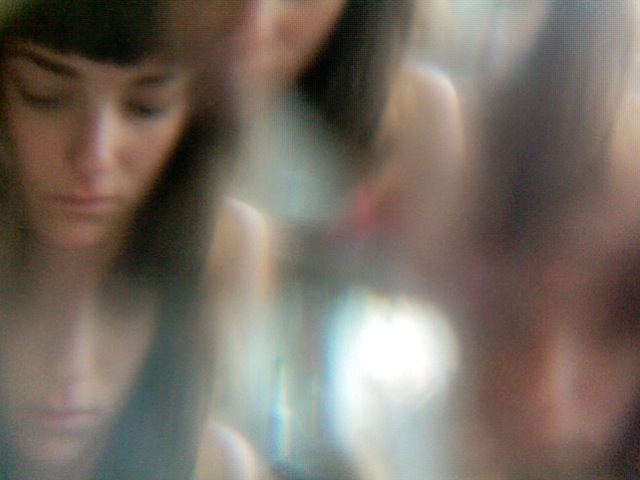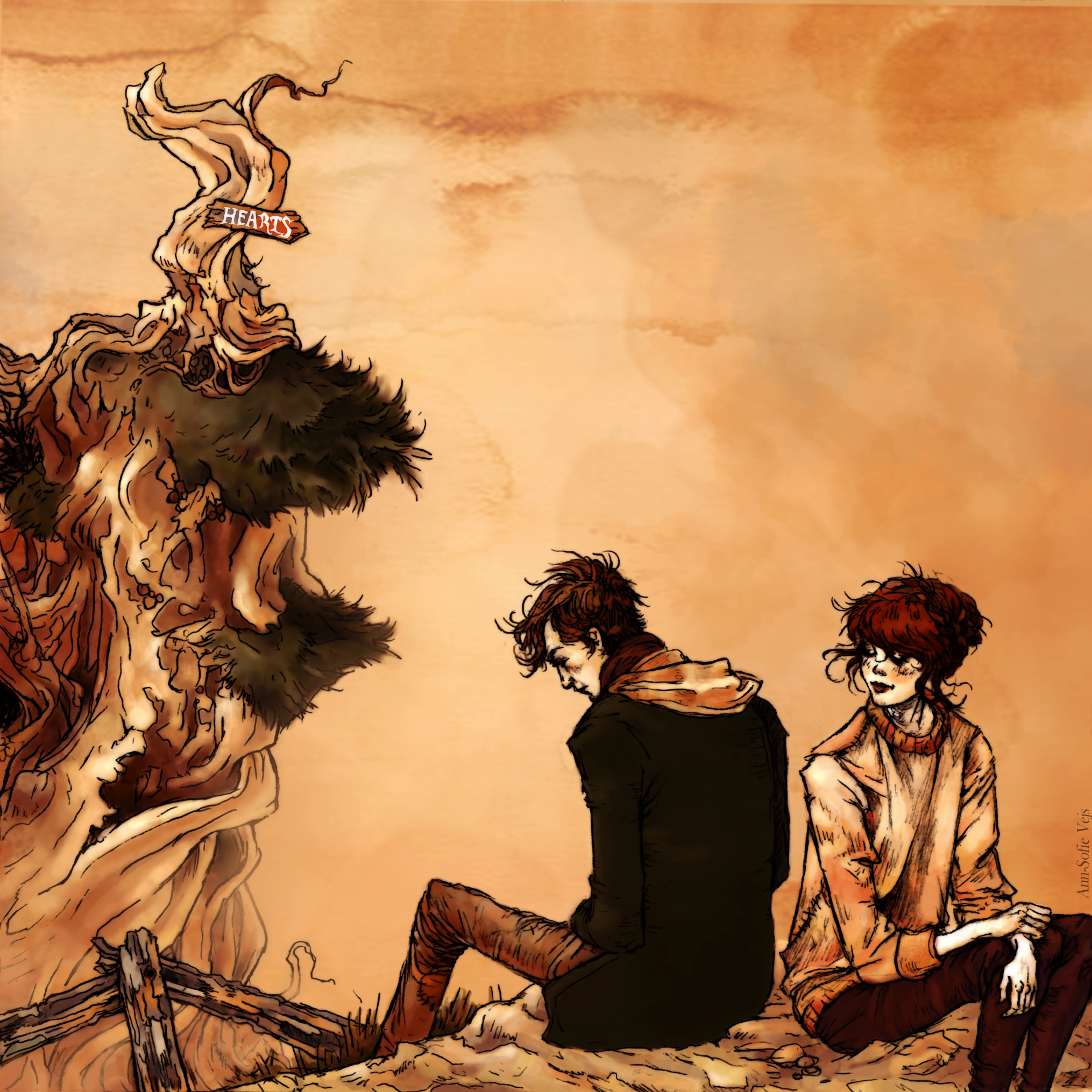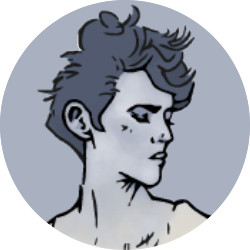 Photo credit: Halina Heron
Photo credit: Halina Heron
The Interview
So, Halina: What is your background in music?
Halina: I just started playing guitar when I was in grade six. I wasn’t immediately bad at it, and was like, “This is cool; I’m gonna keep doing this.”
And what is your songwriting process?
Halina: Sometimes I have this idea, and I’ll start writing words in my phone and eventually come back to them, and sometimes I just sit down and make an entire song. Sometimes I’ll work for maybe a month on something, and other times it’s done in one take, so it always varies a lot.
How easily does creativity come for you?
Halina: Sometimes, it’s really, really difficult. I think I like the times best when it just immediately pops in. Other times, I feel like I have to work really hard to just get even a minute’s worth of something done, which is a little bit frustrating. Then, I just tend to avoid making things completely for a while instead of getting frustrated at trying too hard; I don’t like that feeling.
Are there any particularly prevalent creative obstacles you face?
Halina: I think it’s mostly finding quietness. I live in a place above other people who make noise, and just general life things happen. I’m like, “I would like to record some acoustic instruments”, and then you hear all this other noise. Since I am pretty easily distracted, having all that leads me to start something, then get distracted and never finish it, or finish it two months later when I rediscover what I did.
Do you have anything in place to try and stop yourself from becoming distracted?
Halina: Sometimes, I start making things really, really, really late at night when it’s very quiet, which for me is great, but not if I want to sing, because I know other people can hear me. But the times when it’s after midnight and everything’s very still and there’s no traffic outside, then I’m like, “Alright: do this.”
What is your greatest motivation for creating?
Halina: I think maybe that’s dependent on what’s happening in my life at that moment, which is always different. I think general day-to day interactions that I have are pretty inspirational sometimes; I’m around a lot of creative friends, and whenever they start talking about ideas or little things they want to make, I start also wanting to do them.
What is the most important element of any song you write?
Halina: For me, I think, it’s a little bit of… human-ness. I say that because I don’t do anything extremely perfectly, so there’s always some little flaw that I leave in. There’s been times when someone’s mixed my music and taken out, like, [the sound of] me sitting down with my guitar, and when I heard it the second time, I was like, “No, no, no. You have to put that back.” Having those little, tiny bits are really important to me. It’s like, you can hear something in the distance that I know is in my room, like my coffee cups and my spoons; you can occasionally hear that. Those are really important to me, for some reason.
Is it just, perhaps, that it makes it sound and feel more real?
Halina: I think so. For me, at least. I get a little bit freaked out at times if things are mixed too perfectly; I need those tiny, little flaws.
Does an intense period of writing affect your mood?
Halina: Sometimes. [laughs] In the last month I hadn’t written nearly anything, and the last few days I’ve probably done, like, five tracks. I felt great! [laughs] Productive, I guess. Good to finally get all of these ideas out in a constructive way. Sometimes, I just feel really sad about it though. I think it’s bringing a lot of the feelings I have when I’m doing it, forward, and then I have to deal with those feelings afterwards.
Do you think of your music, in general, as being sad?
Halina: I don’t, really. I’ve had other people describe it as such. Someone described it once as ‘sad forest music’, which I very, very much enjoyed because now I can categorise it for other people. But, to me, I don’t think most of it is sad. It’s just the feelings I have at the time. I always think it’s more of a positive. There’s always a little thing in there that, for me at least, is a good thing. I’m like, “This is a positive!” [laughs] But other people sometimes describe it as sad.
What is it you hope to communicate to people through your work?
Halina: I’m not sure that I’ve ever really been trying to communicate to other people. There are a few times where I’m communicating, I guess, to certain people, but they’ve never known it. [laughs] It’s mostly just me talking to myself. I guess I just don’t super-think about what other people are going to think of the song at the time. Maybe afterwards, I’m like, “Oh, goodness!” but at the time I just do it more for myself.
So, how successful do you feel you’ve been at communicating with yourself?
Halina: I feel like it’s worked out pretty alright. I guess it’s like anyone who makes anything in their life: you look or listen back and you know exactly where you were at that time. I think, sometimes, that’s been really important to me: to at least still know that I’m doing alright.
Are there any common misconceptions that you feel people make about you based upon your music?
Halina: … I can’t really think of any common misconceptions, but I’ve recently been feeling like people put these ideas on you of what they think that you are, or what they think that you’re like, because of the things you make. I’d never really experienced that in my life before, so I think it’s a little bit bizarre. I’ve heard other people talk about it, but to experience it is very, very strange. I’m not even sure what the misconceptions would be; it’s just this general feeling I have towards it.
You’re also involved in video game development: Is that something you’ve been doing for a while?
Halina: No! Since 2013, I think it was. I had a friend who did music for games – I was living abroad at the time – and he said, “I know your music and I want depressing guitars: Can you make something for this?” I was like, I don’t have time right now, but here are the old things that I’ve made that I’ve had around since 2010. I just sent it over, and he put it in the game (Yawhg). I had no idea about games at all at that point. I didn’t know that anything would happen – [laughs] – and then, a whole bunch of things happened! We were nominated for audio at the Game Developers Conference (GDC): the Independent Games Festival (IGF) part. I was like, “What is happening?” [laughs] Before that, I didn’t know anything. I’m still [involved] a little bit in it. I’ve worked on Moon Hunters and stuff, as well; that’s where ‘g u i l t y‘ is from.
Is it something you enjoy?
Halina: I think so. Sometimes it’s very, very bizarre and stressful. I like working on the smaller projects with my friends. I did a jam last weekend – where you make a game to completion in three days – and just made some fun little bits for that.
Is it something you see yourself staying involved in?
Halina: Maybe; for the little projects.
In general, what are you most fascinated by?
Halina: A lot of things! [laughs] … Very small details. All the very fine details that a lot of people don’t notice in day-to-day life, but make me very, very happy. And plants. [laughs]
Any particular reason why plants?
Halina: When I lived abroad I started buying them at the thrift stores when they were like, dying. I would just take them home and try to bring them back to life. I thought it was very rewarding and fun, and I’ve sort of just stuck with it since. [laughs]
What makes you smile? And you can say ‘plants’ if you want to.
Halina: Yes! [laughs] … A lot of things do, actually. So many things. A lot of, again, very small detail things: making eye contact with strangers in the street; being around my friends creating strange things, and our interactions with one another, being very odd people. Existing, I suppose, in a very weird way. [laughs]
You used the word ‘odd’ there: Do you like the fact that your music is a little different?
Halina: I suppose so; I think it’s pretty alright. I mean, I was never going specifically for that; it’s just what comes out. Sometimes I listen back, and think: I don’t even know how I made that. [laughs]
I think my favourite things are oddness and difference. So, I think it’s kind of neat; if people describe it as odd, that makes me very happy. [laughs]
What do you feel that you gain from being artistically inclined?
Halina: Probably a lot of things. And it’s also detrimental in some ways. Gaining: probably just the appreciation for a wide range of different… feelings about something, maybe. I’m not quite sure how to word that properly. Maybe an appreciation for a great many things that I feel some people are lacking.
And what might those things be?
Halina: I think some people don’t pay attention to the small things around them. To me, fine dress fabric details are super interesting and important, so I notice if I’m around people who don’t necessarily create, that they live in an entirely different world to me. I’m like, “You’re missing out on so many things!” And they’re like [shrugs shoulders]. They live in their own world, and that’s okay too.
You mention there also being detrimental aspects of being an artist. What are they?
Halina: My own self! [laughs] I struggle with depression as well, so sometimes not attaching your self-worth on the things that you create is super important: something I’m learning. I feel like it’s mostly a struggle with myself. Making things helps, but at the same time, making things doesn’t help…
Are you more critical of your work, or more critical of you?
Halina: I’m trying to be less critical of myself as a person, and I am pretty critical of my work, sometimes – in annoying ways. Like, the whole track could just be fuzzy and you could hardly hear it, and then there’s this one tiny, little note, and I’m like, “Ugh, it’s that one.” That’s where someone else would be like, “Oh, as a whole, the quality of this track is not the best”, and I’m like, “No, it’s just that one note, and it’s gonna wreck me until I fix it.”
To what extent would you like your creative output to define you as a person?
Halina: Hmm.
That was a look that said: ‘What the hell kind of question is that?!’
Halina: [laughs] … Enough but not too much. I feel like, if I was to put all of it in, then what if I stop making things one day? Am I just going to feel really, really, really awful about myself?
Do you feel happier when you have the opportunity to create?
Halina: I think so, yeah. Usually. I try not to force the making of things too much, because I just stress myself out about it not being good enough or feeling too forced.
Could you imagine yourself not creating?
Halina: I hope not. I spent a long while before this year not making things consistently, either because of circumstances, or I just didn’t have it in me, and it was very strange and a little bit like I didn’t know exactly who I was. Like, what am I doing with my life? I’m not making anything; I’m just existing. For me, it was very, very strange.
So, no. It’s sort of happened, but it’s like a different version of myself if I’m not making things consistently. I hope there’s a balance one day: make things and feel okay, and not make things and not feel stressed out that I’m not doing anything.
 Halina Heron featured onBeautiful Songwriting 5
Halina Heron featured onBeautiful Songwriting 5You can keep up with Halina via her Twitter and Instagram pages, and purchase 'villages', along with her other work, over on Bandcamp.
If you enjoyed reading this interview and happen to think we're doing something right, please consider sharing the link -- whether on social media, or just with a friend, it'd really help us out! We're also on Facebook, Instagram (@alonelyghostburning) and Twitter, so if you'd like to keep up-to-date with the publication of new content, and also provide us with a whole heap of motivation, please do give us a like or follow.


